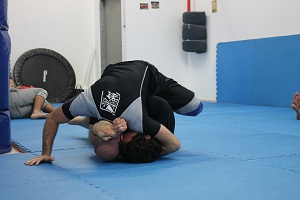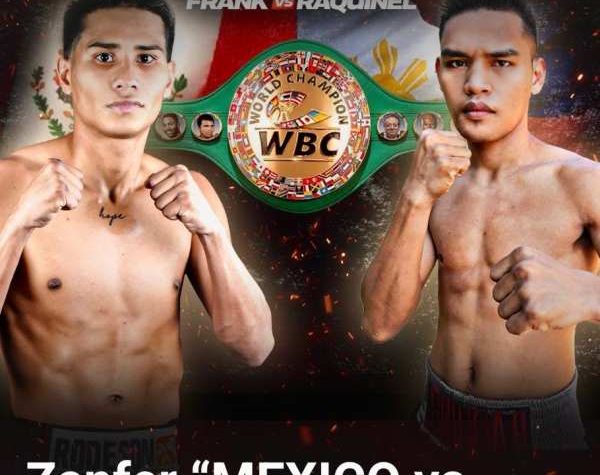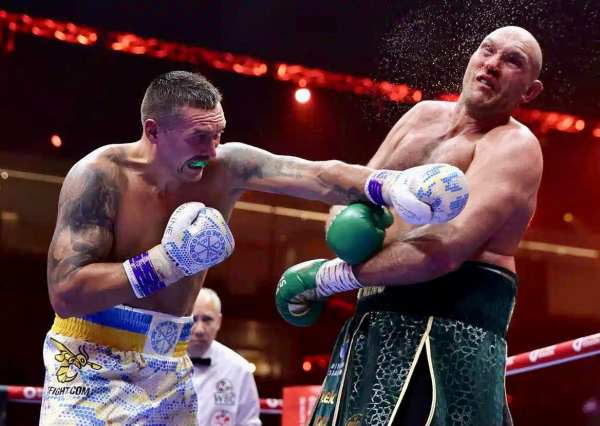
At the Israeli BJJ championships, I enrolled in the under 70KG over age 30 brackets and lost to the only other competitor.
/cdn0.vox-cdn.com/uploads/chorus_image/image/53580867/copa_069.0.jpeg)
Ole – that’s a real name – is a good old friend of mine. I actually vouched for him when he applied to renew his resident visa in Israel. Right now he’s trying with all his might and ability to choke me. I can see his stare transforming. His eyes glistening, his mouth gaping. I believe he figured something out, and if I let him, he’ll choke me right unconscious.
I didn’t feel like coming here this evening. When I entered the room tonight I promised myself I’d keep calm and wouldn’t turn every struggle into a war to the death. But you need two for that tango. The promise to go easy with each other is the most forgotten one in Jiu-Jitsu gyms the world over; the entrance sign “keep your ego at the door” is the “speed limit 100 KMH” of fighting. One is attacking with half-power, the second is defending with three-quarters in order not to get embarrassed, the first one is responding with four-fifths and within a minute you have a death battle on your hands. Or at the very least, in order to not let Ole choke me out, now I have to put some effort into it.
That’s the real genius of the belt system: it appeals to the ego. The belt insists that you continue to make an effort for it. There are five belts – white, blue, purple, brown, black – and they become the more rare the further up you go. At the time I’m writing this, I’m a purple belt. There’s nothing a purple belt hates more than a determined blue belt (and amateur wrestlers. Those are awful). And no one wants to be the purple belt that the white belt catches with a choke, especially when the white belt is one of his best friends. With death out of the equation, the belt system makes you put an effort into it.
I enrolled in the Copa de Israel Jiu-Jitsu Competition. I don’t know why. When I was younger I knew why I did the things I did, or at least I thought I knew. A 15-year-old knows why he’s competing even if he doesn’t ask himself that question. He competes because he wants to be the best in the world, or the best in his high-school, or it’s about a girl. A lot of times it’s about a girl. He competes because that’s how he’s wired, or he thinks he is. The young want to test themselves against others, or they give in to peer pressure, and they look for enlightenment in odd places. They have fantasies, crap movies, UFC on TV, coach admiration, feathers to their tail. They’re looking for glory, local and temporary as may be. And really, a lot of times it’s about a girl.
Why does someone who doesn’t compete compete? Why compete at 34? I told my coach Roy to sign me up, and then I settled to think about these questions. They floated in my head for a few minutes before I realized it’s proper to find answers for them.
I don’t know why. I’m beginning to believe my chances of becoming a world champion are slim, and my wife is already married to me. I also won’t be European champion for over-30, and in the real world I also don’t want to be; competitors are enslaved to the mat, shatter over losses, and forgo pretty much everything I enjoy. For instance, I now fancy a beer and I have a few excellent ones in the fridge, but I’ve decided not to drink in the days left until the Copa. And the fact that I’m maintaining my decision right now makes me expect an adoring phone call from Nadia Comaneci. I also don’t have any special desire to test myself. I know more or less where I’m at: in the middle. Better than those I’m better than and not as good as those I’m not as good as – and there are plenty on each side (I’m better than most because I’ve been here longer).
Why am I doing this? It took a disturbing amount of time before the first adequate answer popped in my head. But once answers began appearing, it was very easy to reject them outright:
1. To show myself that with a wife, a toddler, a baby, and a job, at 34, I’m able to do it. (I can also show myself that I’m able to drink half a bottle of Tequila and have Taco for dessert – and still, why?)
2. I love it. (That just lead to more questions – Do I love it? Why do I love it?).
3. It will feel good to win. (Will feel bad to lose)
4. It’s something different to do. (So is naked macrame in the desert)
5. Because c’mon I already said I’ll do it. (Well then I’m going to do it, what do you want now?)
6. Some of the practices fall on the children’s shower and bedtime routine. (That’s true, I am right)
It has been a few hours since practice, so the thought “why not?” didn’t cross my mind. Those who do sports know why not: because it’s hard. Specifically, Brazilian Jiu-Jitsu is a sport of ancient noble Japanese roots, and as such it is not more competitive than a knife fight in an alley. There are 18-year-olds, 25-year-olds, there are Russians, everybody is an off-hours Olympic athlete. It’s choke or get choked, or worse, get choked by a lower belt. Not every evening of work and kids and going down with the dog and hopping to the bank and reading a story do I feel like adding a couple of hours of grappling. Usually I feel like lying on the couch next to the wife and watching TV.
Brazilian Jiu-Jitsu is a branch of Judo, Judo is a branch of Jiu-Jitsu, all of those are styles of wrestling, and all of those are much harder than lying on the couch and watching television. “The good emperor” Marcus Aurelius wrote many years ago already that “the art of living is more like wrestling than dancing.” Hard.
In the times when I visit it a lot, the Jiu-Jitsu and I have a good relationship, and there aren’t many things better. Not many at all. Do you know how unbearable a surfer sounds when he’s talking about surfing? At a minimum, this is how I feel towards Jiu-Jitsu. And I’m starting to feel I have an allowance of days on the mat, so competitions help me use it. That’s the root of why I compete: because competitions put me on the mat. I’m remembering another sentence I relate to and this one is even more pertinent: an aging grappler named Roberto Leitao said something along the lines of, “I am the man who loves the art the most, others may be champions, that is of less importance.”
So I am the man who loves the art the most. Except Roberto Leitao and maybe a few more people.
Most guys at my gym treat their body like a temple, but I always looked at it more like whore house in Cancun. There’s a national Judo team pensioner, and a Dagestani wrestler; there’s Yossi, who travels four times a week in public transport an hour and a half to Tel-Aviv, and back, in order to train with a serious coach and a good team – and he shows up to morning sessions too now that they announced the competition. Serious coaches have opened better teams, closer to his home, and he’s still with us. We have a former Brazilian national volleyball team player; a 61-year-old 7th Dan who competed with the famed Carlos Gracie Jr., that shows up occasionally and can still maul you over. There’s Shay, who’s now 40, four years straight – lifts weights, doesn’t miss a competition, and doesn’t lose in competition really. He’s a lawyer and I’m convinced that he doesn’t mind losing in court as much as in a match in the gym in front of seven spectators. There’s a psychiatrist, a family doctor, and two med students who show up every week. Others, like Levy and Roman – there’s always a Roman, we have a few – devote their body and life to the study of the science of Jiu-Jitsu.
I was an alcohol reporter for five years. It isn’t easy for me to contend. I love that.
The primary objective is to reach a hold that will force your opponent to submit. Mostly a choke or a lock on a limb. The secondary objective to reach dominating positions and pins. Dan Gable, a challenger for the title of greatest wrestler in American history, says you need to be the one that no one in the gym wants to train with. That if someone beats you in practice and you’re willing to leave the mat without demanding an immediate rematch, you need to check how to fit your mentality to this sport. I sometimes arrive at practices high. I’m not that competitive. I’m interested in getting home.
At times I can be dangerous. Seasonally, like when I just have a new baby and I must spend as long a duration as possible away from home. Beer can be preferable to training. Sex. Not diapering. When diapering is on the other side of the scale I’m a Soviet athlete, and after a month of training straight, my whole history on the mat is coming alive. Then I can get dangerous to other purples as well. The idea is to keep at it. The Jiu-Jitsu+Strikes – Full contact, we used to call it – we used to do in the mid 90s was cruder, checkers to today’s chess, but it was Jiu-Jitsu.
The clearest line I can draw between 14-year-old Ram and 34, is probably that Jiu-Jitsu. It’s broken, because I stopped doing it and returned to it more times than I can recall, but it’s there. On the way I learned and worked and got drunk and got high and traveled and laid and read and wrote and boxed and stopped and raised a dog and he died and I got married and raised another dog and fathered a boy and a girl and changed cars, and also a lot of friends, and the Jiu-Jitsu stayed. If 14-year-old me met today’s me, he would have loved a lot of things, get excited over a lot of things, hated other things, and maybe even quarreled with me, really quarrel with me. But then I would have beaten him severely, and he would have asked: “You still do Jiu-Jitsu?” And I would’ve answered, “Yes, and better than you had”. And he would have smiled reluctantly and said, “Cool.”
I never was an unusual talent. At most, a usual talent. With a potential that reduced slightly more with every absence from the mat. A classic B-league team that can give a good fight for the cup. My top achievement as an adult grappler is quarter-finals in ADCC Israel, two wins plus a good fight (in Jiu-Jitsu it’s very hard to lose. You can win and you can give a good fight). The ADCCs are considered the Israeli championship for no-gi, and that’s a good opportunity to tell you how things work in the field.
Every Jiu-Jitsu competition conducted in Israel is the Israeli championship in Jiu-Jitsu. Even if another one was held the previous week. Every competition in Europe is the European championship, every competition outside of Europe is the world championship.
When telling the guys, and especially journalists excited to the rims of their souls, it is customary to omit from the title of the competition you participated at any one of the following details – “for white belts,” “for seniors,” “for blue belts,” “special rules,” “for beginners,” “for purple belts,” “for amateurs,” and “for brown belts.” Likewise, “three competitors enrolled at the category” (or two, as you’ll soon see).
Given a little time, any three coaches will split into five organizations. This one isn’t going to the competition that that one is organizing. This one is competing only in competitions that that one is setting up. This one is not sending his students to compete under those rules – and its accepted, even expected, that they will complain on the agreed upon rules even if you do show up. This one is focusing actually on wrestling. This one is not ready for this level. This one wants to know who signed up yet. This one does not compete in the country and everybody knows why. This one can’t on Saturday. This one can’t on Sunday. This one says he won’t come but eventually does come. This one says he will come but eventually doesn’t come. This one is founding an association and is calling everyone to join him, except that one. This one doesn’t speak with that one since the thing that happened. You don’t know what happened?
To sum it up, it’s a rare thing that all the leaders of a weight class meet in one competition, although once every few years the stars align and then everybody wins. Except for the losers, of course.
The Copa is considered especially dignified. But still the Israeli championship. Only this time, it seems the organizers tried to aim a little bit too high.
The organizers of the event’s intentions were professional: to divide the contestants according to the international Jiu-Jitsu federation statute (the leading of the international Jiu-Jitsu federations, of which rules I of course have a major problem with). The statute instructs to separate women and men, and then, in men, the age groups 16-18, adults up to 30, over 30, over 35, and over 40. In every age group there’s additional divide, in the country, to three levels (white, blue, and purple to black) and eight weight divisions (under 64 to open weight). In theory it’s very professional. In practice it’s more categories than competitors. Especially if you take into account the fact that this coach doesn’t come, and this one decided to skip at the last minute, and there’s this one with a lot of students who just got in jail for sexual assault of only some of them.
On the sidelines of the main mat one of the veteran competitors is telling me: “looks like they employed these divisions five years ahead of due time. In a few minutes I’m going up for a match against myself.” That’s another very acceptable practice in local championships: to hang around the main court in between the mats, preferably while criticizing the administration of the event (notably popular is “it’s bush league the way people hang around the main court here in between the mats”).
Me, for instance, registered for two brackets: over 30 up to 70KG, with and without the traditional gi (oh, right, I forgot to mention there are categories for with and without the gi). The first bracket I registered to got completely cancelled following the suspension of its only registered competitor (Ram Gilboa, putting a baby to sleep, could return to training already tomorrow pending wife approval). The second bracket, with gi, to my understanding got unified with another thin age/weight category, because only me and one opponent competed for the title, and the guy was huge, or at the very least huge compared with me, which is at the very least big.


/cdn0.vox-cdn.com/uploads/chorus_asset/file/8060741/copa_174.JPG)
/cdn0.vox-cdn.com/uploads/chorus_asset/file/8060757/077.JPG)
/cdn0.vox-cdn.com/uploads/chorus_asset/file/8060883/copa_058.JPG)




More News
Casimero TKO’s Sanchez in 1st round
Raquinel wins WBC Continental Americas super flyweight title
Frank vs Raquinel on ABEMA LIVE PPV